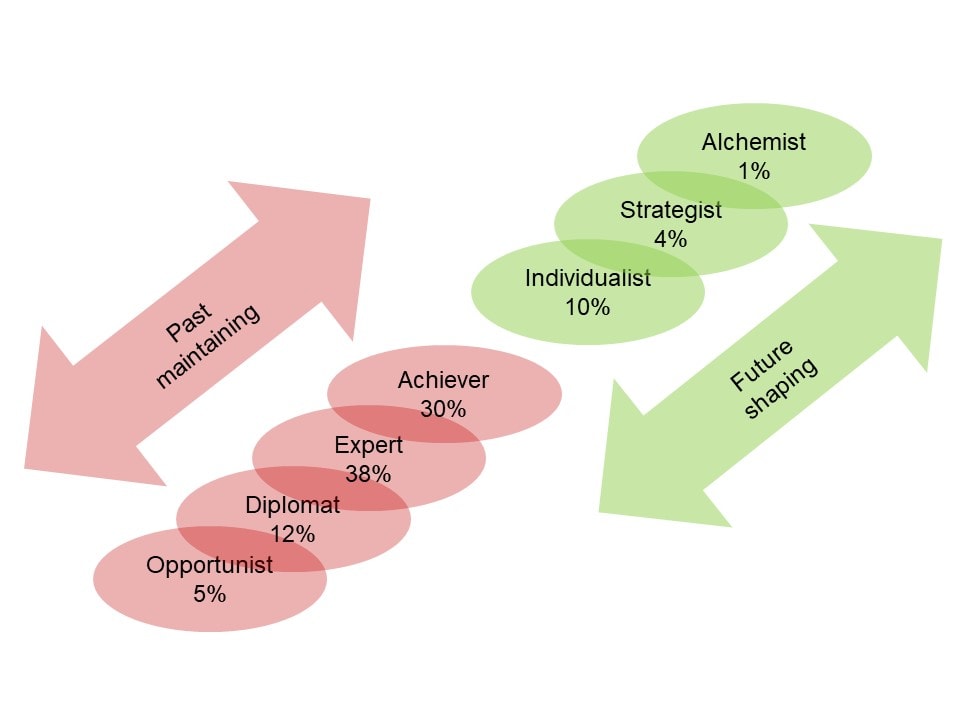The success of managers cannot be explained by different leadership philosophies, personalities or management styles. Rather, it is due to their inner «logic of action» – how managers assess their environment and react when their decisiveness or reliability is required. And yet relatively few managers try to understand their own logic of action, let alone change it.
If leaders take the time to better understand and learn from their own personality and personal development, they can not only improve their skills but also positively influence their performance in the company.

Changes and transformations can only be achieved from the level of the «individualist».
«Individualists» have realised that they can only change themselves. They question their own patterns, release obstructive assumptions and behavioural patterns and empower their employees to get moving themselves.
| Action logic | Characteristics |
|---|---|
| Alchemist 1% | Generates social transformation. Integrate material, societal and social transformation. |
| Strategy 4% | Generates personal and organizational transformation. Peer support. Vigilance and vulnerability are essential leadership elements. |
| Individualist 10% | Interweaves competing personal and company action logics. Works with tensions. Creates unique structures to resolve gaps between strategy and performance. |
| Achiever 30% | Meets strategic goals. Effectively achieves goals through teams; juggles managerial duties and market demands. |
| Expert 38% | Rules by logic and expertise. Seeks rational efficiency. |
| Diplomat 12% | Avoids open conflict. Wants to belong; obeys group norms; rarely rocks the boat. |
| Opportunist 5% | Wins any way possible. Self-oriented; manipulative; «might makes right». |
Source:
Rooke, D. and Torbert W. R. (2005):
Seven Transformations of Leadership. Harvard Business Review. April 2005.
